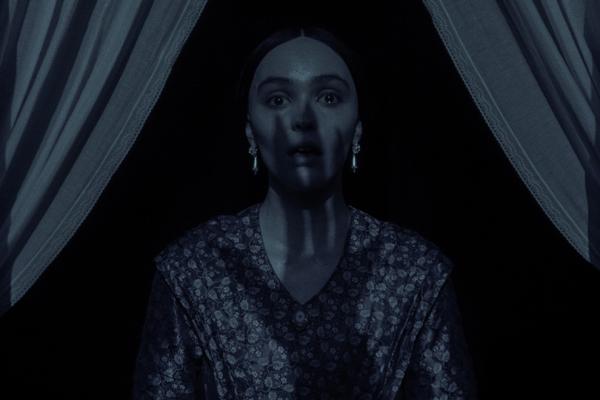I love birds, I have nothing against them. Sometimes, when they land on the balcony of my apartment and peck about, I gaze at them through the window and silently wish them well.
I visually convey the same adoration to Ethan Hawke, one of our best actors, whenever I see him powerfully using his artistic abilities onstage or onscreen — as he does in the 2017 film First Reformed, playing a concerned-about-climate-change pastor.
So hear me out, social justice-minded Christians who are one Jesus-themed Hawke performance away from petitioning Yale Divinity School to award him an honorary degree, when I say that the actor’s latest — the TV miniseries The Good Lord Bird — although funny and as finely executed as it can be, is not as majestic as the extinct ivory-billed woodpecker that is its namesake. Nor, quite frankly, could it ever be: Its source material provides little that we haven’t seen before. The wings of Hawke’s newest project are clipped from the get-go.
That’s not to say the novel that the The Good Lord Bird is based on is bad. In 2013, the humorous book of the same name — in which a Black slave child gets mistaken as a girl by the abolitionist John Brown and looped into the eccentric Jesus warrior’s crusade for the freedom of all U.S. slaves — pulled off a surprise National Book Award for Fiction upset against works by a Pulitzer Prize winner (Jhumpa Lahiri), two MacArthur fellows (Thomas Pynchon, George Saunders), and a writer with her second National Book Award nomination for only her second published book (Rachel Kushner). Still, bringing laughter to the serious subject of slavery — although a rare act — is not one that provides enough wood to nail a new step into the lofty, reaching-toward-heaven staircase of stories about America’s original sin.
In 1861, the runaway slave Harriet Jacobs’ memoir, Incidents in the Life of a Slave Girl, gave insight into the horrors of being a mother in bondage; more than a century later, Toni Morrison’s groundbreaking novel Beloved introduced us to a battered parent who would rather kill her own babies than let them grow up as a morally deficient white man’s property. In 2003, Edward P. Jones’ novel The Known World examined the situation of Black people who owned other Black people; Colson Whitehead’s 2016 novel, The Underground Railroad, brought science fiction into the mix (although I have qualms with it). But a Huckleberry Finn-like nature does not suffice to make The Good Lord Bird gleam with emotional or factual knowledge I didn’t already know.
I don’t begrudge Hawke for wanting to play John Brown and producing this project. John Brown’s life was vast and exciting; his willingness to take up arms to defeat injustice mirrors conversations we still have in the church today about nonviolence. Brown’s life led many Christians, however they stood on the question of violence, to greater moral clarity about the humanity of Black people.
And the world the author James McBride created from John Brown’s life is an actor’s dream —full of extraordinary actions to accomplish and emotions to depict — and thus in many ways an audience member’s dream. Will viewers of The Good Lord Bird ever forget Hawke looking into a bunny’s eyes and asking it, “Do you have a fire in your heart for justice?” Can I deny the joy I felt at seeing Hawke reunite with his Boyhood co-star Ellar Coltrane, who once again plays his son, or Daveed Diggs of Hamilton fame and Rafael Casal (Blindspotting) once again ending up in the same production (albeit, in The Good Lord Bird, never sharing a scene)?
The Good Lord Bird is fun. You’ll chuckle at the dynamics between John Brown and Frederick Douglass (Daveed Diggs); Henry — the slave child mistaken for a girl and named ‘Little Onion’ by John Brown — and the fellow runaway slave, Bob; John Brown and small creatures of the wilderness. In a pandemic and a U.S. presidential transition in which only one of the two people with “President” in their title has accepted the reality that the other person will be leaving their office (surprise: it’s the white supremacist), laughter with substance can be enough nourishment for a journey. Not every artistic expedition has to result in a grand discovery. Sometimes it’s okay to look around and discover you’ve migrated back where you came from.
Got something to say about what you're reading? We value your feedback!







